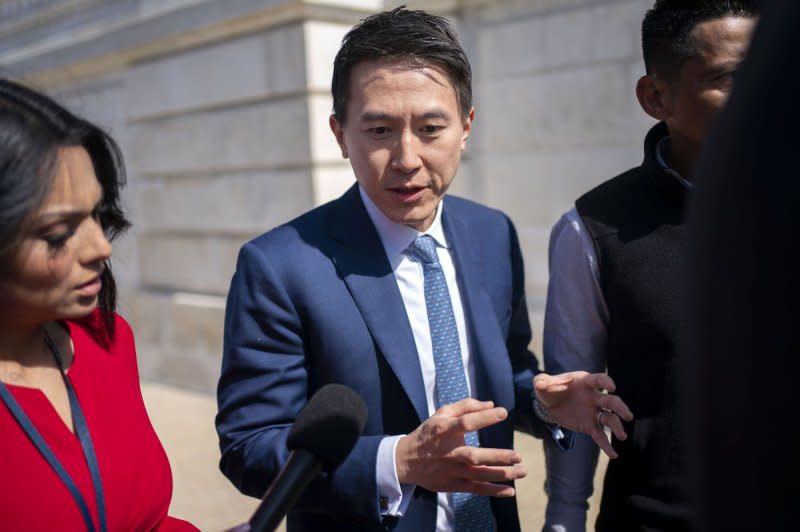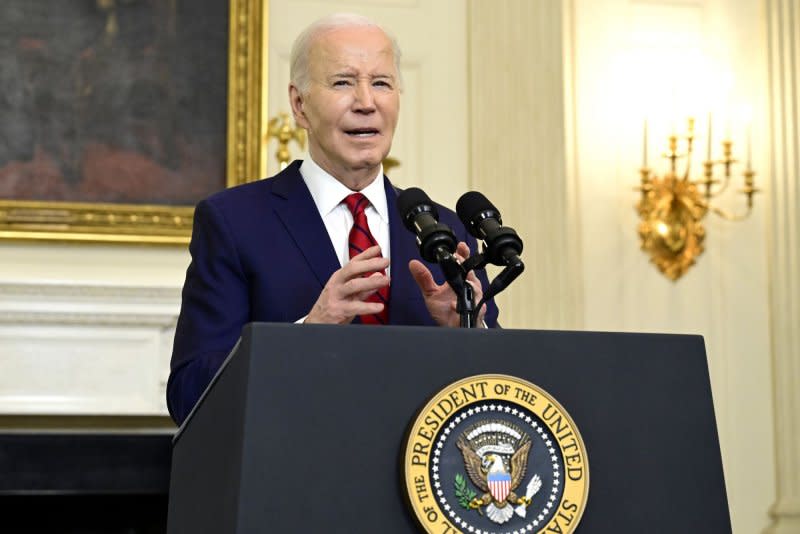TikTok to sue U.S. over possible First Amendment violation in app's recent 'ban'

May 7 (UPI) -- The popular social media giant TikTok on Tuesday let it be known that the Chinese-owned company is now taking the U.S. government to federal court to stop enforcement of a recently signed law that effectively would ban the app unless it sells.
"For the first time in history, Congress has enacted a law that subjects a single, named speech platform to a permanent, nationwide ban," TikTok says in court documents filed Tuesday in a federal court of appeals.
They add how it will bar "every American from participating in a unique online community with more than 1 billion people worldwide," which they contend is an "unprecedented step" and a First Amendment "violation."
In early March, the House Energy and Commerce Committee had unanimously approved a bill -- the Protecting Americans From Foreign Adversary Controlled Applications Act -- that would essentially ban TikTok from American app stores unless its China-based parent company, ByteDance, sold the app in a year or less.
In TikTok's lawsuit, they argue that what the United States has proposed is not based in any kind of workable reality, and "certainly not on the 270-day timeline required by the Act."

The United States claims the recently singed law is not a ban because it gives ByteDance a chance to divest its own assets.
"The 'qualified divestiture' demanded by the Act to allow TikTok to continue operating in the United States is simply not possible: not commercially, not technologically, not legally," the company said.
The House on March 13 passed the bill in a 352-65 vote, and President Joe Biden signed it into law on April 24. The bill included a $95 billion package to commit foreign aid to Ukraine, Israel and Taiwan and passed the U.S. House and Senate with overwhelming support before getting signed by the president.
That was followed by the announcement that former Trump administration Treasury Secretary Steven Mnuchin was putting together a group to buy TikTok, who called it "a good business" that "needs to be controlled by U.S. businesses."
But ByteDance has insisted that it has no intention of selling the video-sharing app, which has 149 million American users, despite the prospect of a U.S. ban hanging over it.
In December, a federal judge blocked Montana's statewide TikTok ban, saying it violated the constitution's First Amendment after Montana became the first state to ban the social media app with the state's Republican governor claiming its influence by China.
Erin Reed, a transgender rights activist who's also engaged to a Democrat Montana trans lawmaker -- Zooey Zephyr -- wrote on X how she hopes the lawsuit to challenge and overturn the ban is successful.
"As someone who uses TikTok heavily to communicate facts about LGBTQ issues and anti-LGBTQ laws to young people and families on the platform, losing TikTok would be a net loss to the community," Reed said Tuesday on social media.
Reed is one of scores of other younger people who have been calling on Congress to not ban the popular social media app.
Also on Tuesday, celebrity Russell Brand was on his live-streamed show with former U.S. Rep. Tulsi Gabbard, a former Hawai'i Democrat and presidential candidate, to discuss the potential TikTok ban.
"Is the TikTok ban really about protecting you, or muzzling platforms that question the government narrative??" Brand had posted on X.
TikTok also said a ban of their app could be a slippery constitutional slope with broader implications.
"If Congress can do this, it can circumvent the First Amendment by invoking national security and ordering the publisher of any individual newspaper or website to sell to avoid being shut down," the company said in court documents.
TikTok has cited the argument that banning or forcing the sale of the company would be a First Amendment violation. Norman Bishara, professor of business law and ethics in the Stephen M. Ross School of Business at Michigan, previously told UPI that this is likely to be the path the company takes to argue against the U.S. government.
In its legal argument, TikTok wrote that "any such divestiture would disconnect Americans from the rest of the global community on a platform devoted to shared content -- an outcome fundamentally at odds with the Constitution's commitment to both free speech and individual liberty."
"The First Amendment argument is probably the topline one here that we've seen before from TikTok," Bishara said.
"It's definitely part of TikTok's lobbying strategy. You can imagine if you're TikTok you're really feeling a bit under assault here," he added.

